BPA-Free Cans – Safe or Toxic?
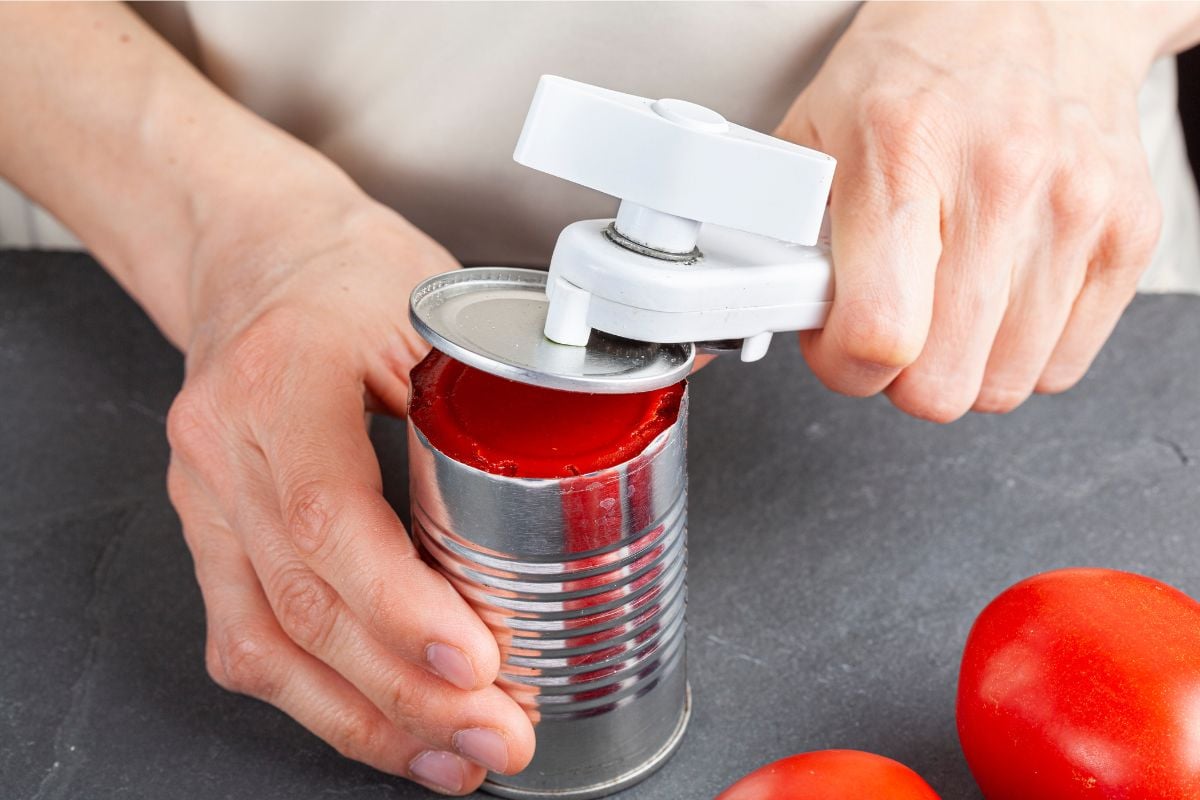
After I discovered that bisphenol A (BPA) may leach from the can lining into food, I ditched canned food altogether. Well, almost all canned food. I still ate canned sardines, taking solace in the label statement “No BPA used in can lining.” Then I called the company to ask what they used instead of BPA, and they said it was proprietary information.
Even though, allegedly, they tested for BPA, they had no test results to show. And they did not test for other bisphenol family members, such as bisphenol S, bisphenol F, bisphenol B, and others. As a result, my confidence in those “BPA-free” canned sardines dissipated. At first, I was happy to see “BPA-free” claims as an indicator that the market responded to the issue of BPA in cans. But when I dug deeper, this is what I found out about BPA-free cans. (And if you still use plastic water bottles, this post is for you!)
BPA-Free Cans
When I started researching product ingredients, there was a combination of factors that pushed me to do it. First, I was expecting a baby. Second, I had been diagnosed with Hashimoto Thyroiditis. Third, my dad had died of metastatic cancer. All that made me wonder what I could do to improve my own health and ensure safety for my baby.
I remember being shocked to see a list of chemicals on a “natural” baby wash. Suddenly, I realized it was my responsibility as a consumer to make sure I was using safe products. Since then, it has been my passion to expose chemicals in products and educate consumers on their potential health effects. It is imperative that we become mindful of what we eat and apply on our skin and our children’s skin.
Since 2012, when I began my health journey, I have completely recovered from Hashimoto’s. For details, please visit my posts Can Breast Implants Cause Autoimmune Diseases and My Health Update After Explant Surgery.
Moreover, I have founded I Read Labels for You whose aim is to help consumers make informed decisions in the market. For this purpose, I have developed a five-step research approach based on thoroughness, honesty, and integrity.
With that said, let’s talk about BPA in cans and why avoiding BPA is best.
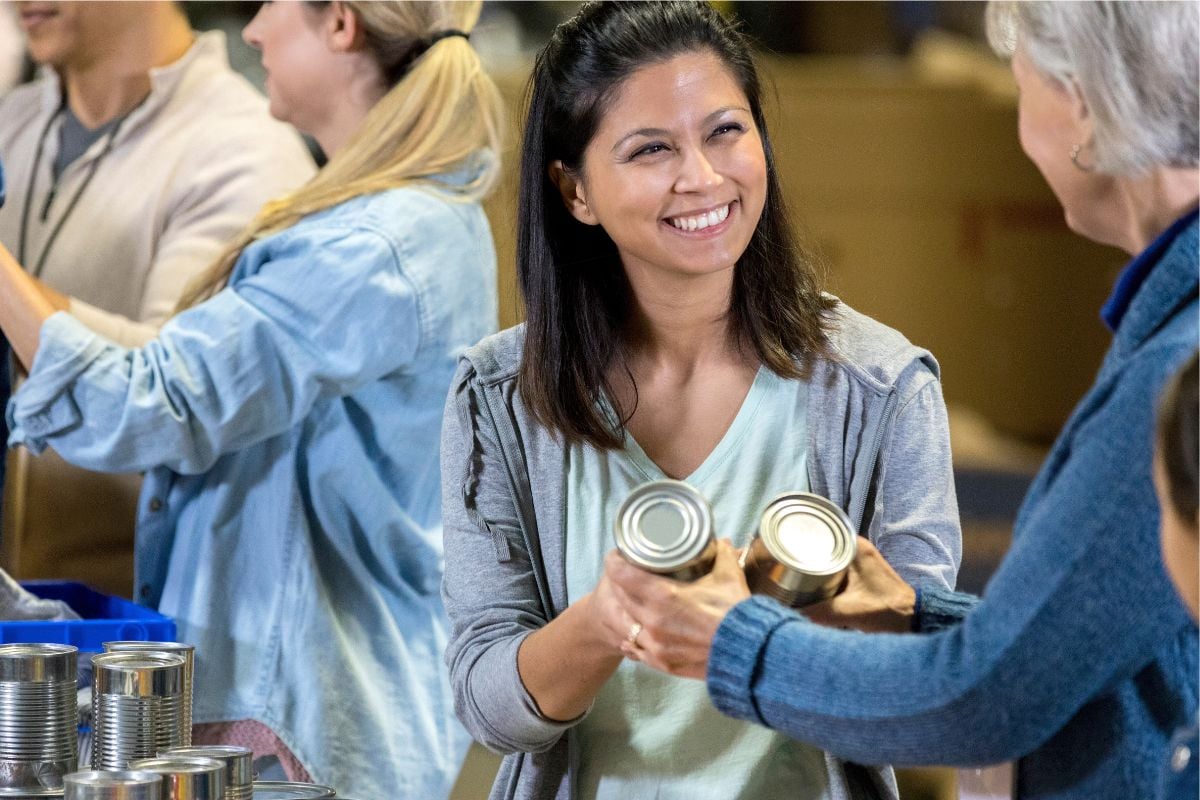
Potential Negative Effects Of BPA On Health
To begin with, bisphenol A (BPA) is common in epoxy-resin linings of metal food cans. The epoxy lining forms a barrier between the metal and the food which helps create a seal. This seal prevents corrosion and, thus, keeps the food safe from bacterial contamination and a metallic taste.
In addition, BPA has been used in the manufacture of reusable plastic bottles, including baby bottles, sippy cups, and infant formula packaging (source).
However, the major problem with BPA is that it is classified as an endocrine disruptor (source). Even small amounts of BPA may interact with estrogen and androgen cell receptors in humans. This may lead to cancer development and progression (source).
Also, animal studies show that adult exposure to BPA may affect the brain, the reproductive system, and the immune system.
Additionally, this study showed that BPA exposure during pregnancy may cause oxidative stress in both the mother and child. This, in turn, may lead to diabetes and cardiovascular diseases in the child later in life.
And this animal study suggests that one of the concerning adverse effects of BPA on fetuses is disruption of behavior, especially during late pregnancy.
Lastly, this study suggests that in utero exposure to BPA may increase the risks of asthma and wheezing among school-age girls.
I think these are some of the reasons for the growing demand for BPA-free cans.
But how do we know that BPA in cans leaches from the can lining into food?
Bisphenol A Is Detectable In A Human Body
According to the National Health and Nutrition Examination Survey, there were the following results regarding BPA concentrations in human urine.
First of all, the survey evaluated 7,669 participants of 6 years and older between 2003 and 2008.
People who consumed one can of food had 24% higher concentrations of BPA in their urine (within 24 hours after consumption) than people who had not consumed canned food. Further, consuming two or more cans of food resulted in 54% higher BPA levels.
Moreover, some kinds of canned food were associated with higher BPA concentrations. For example, consumption of one or more cans of canned vegetables or canned fruits caused 41% higher levels of BPA. And consuming canned pasta resulted in 70% higher BPA levels.
The highest level of BPA – a whopping 229% – was after consumption of canned soups.
In other words, canned fruits, vegetables, pasta, and especially soup are the first in line for BPA-free cans.
How Much BPA In Cans Is Safe?
Opinions differ on this one. For starters, in 2009, Consumer Reports tested a variety of canned food. They also found the highest amounts of BPA in canned vegetables, fruits, and soups. By the way, Progresso Vegetable Soup showed the highest levels of BPA, ranging from 67 to 134 ppb.
So, how much is that in micrograms?
To compare, many birth control pills are delivered at 20 micrograms of estrogen. Assuming that a can weighs 416 grams, 100 parts per billion of BPA in it would translate into 41.6 micrograms (mcg), or twice as much as a birth control dose. Of course, it is not correct to assume that BPA acts exactly like estrogen.
The US Environmental Protection Agency (EPA) has established a safe BPA level of 50 mcg/kg/day (source). Further, Health Canada has established the tolerable daily intake (TDI) for BPA at 25 mcg/kg/day. And the European Food Safety Authority has replaced its previous TDI for BPA at 4 mcg/kg/day with the new TDI of 0.2 nanograms (0.2 billionths of a gram) per kilogram of body weight per day. This is around 20,000 times lower than before (source).
Following the European standard, a 40 lbs (18 kilograms) child’s daily BPA intake should be no more than 3.6 nanograms. As we saw earlier, one can of food may expose the child to much, much more than that!
The Food And Drug Administration Opinion On BPA Acceptable Levels
In 2012, the FDA amended its regulations to no longer provide for the use of BPA-based polycarbonate resins in baby bottles and sippy cups (source). And in 2013, the FDA amended its regulations to no longer provide for the use of BPA-based epoxy resins as coatings in packaging for infant formula (source).
Further, the US Food and Drug Administration (FDA) conducted a BPA safety assessment in 2014 and reviewed its safety again in 2018. As a result, the FDA concluded that “currently authorized uses of BPA continue to be safe for consumers” (source).
Nevertheless, in May 2022, in response to a food additive petition filed by a coalition of physicians, scientists and public health and environmental organizations, the FDA agreed to reconsider the safety of using BPA in plastics lining, metal can coatings, and other materials that contact food (source).
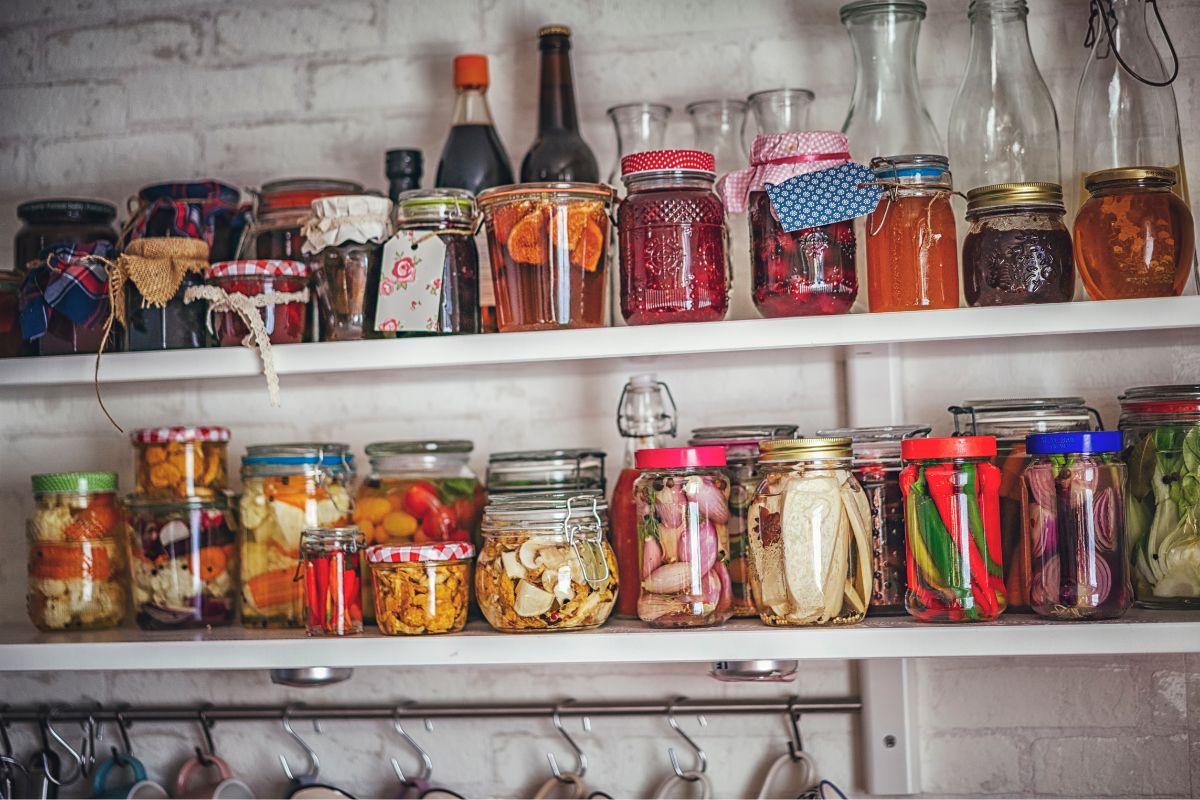
Are There BPA-Free Cans In The Market?
According to the Can Manufacturers Institute, the BPA endocrine disruptor in cans is a matter of the past. Allegedly, about 98 percent of modern food cans have no BPA-based linings. Instead, they use acrylic, polyester, non-BPA epoxies or olefin polymers that are developed to avoid endocrine activity.
In 2017, the Center for Environmental Health (CEH) used an infrared spectrometer to identify lining materials in popular canned foods. The cans were from Kroger, Albertsons, Dollar Tree, and 99 Cents Only retail chains. In total, the CEH examined about 250 samples and found BPA linings in about 40% of the cans. Additionally, CEH discovered that out of the 71 cans that tested positive for BPA, only 3 were listed in a state database intended to list canned foods that contain BPA.
In 2019, the CEH bought 50 of the cans that had BPA linings in 2017. Here is the good news – 48 of the 50 cans had BPA-free lining materials.
Additionally, back in 2017, the CEH tested canned foods from certain ethnic groceries. They found that 71 out of 78 (90%) had BPA in cans. It is unclear, though, if the CEH has retested the canned food from those ethnic stores. It is good to remember that the US market requirements for the manufacture of BPA-free cans may not adhere to the cans manufactured in other countries.
What Is Wrong With BPA-Free Cans?
On the one hand, it is great that many canned food manufacturers have stopped using cans with BPA-based epoxy lining. But on the other hand, most substitutes are not any better or simply are not disclosed.
Thus, the common lining materials replacing BPA-based epoxy lining are oleoresin, acrylic resin, polyester resin, and polyvinyl chloride (PVC) copolymers.
Since manufacturers do not disclose the ingredients of those linings, we know little about chemicals that may leach from them. We do know, though, that PVC is made from vinyl chloride which is considered carcinogenic (source). (You can learn more about polyvinyl chloride in my post about PVC yoga mats.)
For your information, several health organizations surveyed canned food and published their findings in the “Buyer Beware: Toxic BPA and Regrettable Substitutes in Canned Food” report. Some of those organizations are the Breast Cancer Fund, the Campaign for Healthier Solutions, and Clean Production Action. As you can probably guess, the title of the report telegraphs its conclusions. Please, refer to my post Yummy and Safe Coconut Milk for a detailed review of innovative can lining materials.
The only lining that I am relatively comfortable with is oleoresinous enamel. It is a mixture of oil and resin extracted from plants such as pine and balsam fir. To my knowledge, Eden Foods is the only company that uses oleoresinous enamel cans. However, oleoresinous e-enamel lining does not work for highly acidic foods, such as tomatoes.
Conclusion About BPA-Free Cans
While It Is Great That The Market Is Exploring BPA-Free Can Linings, We Do Not Know Much About The Safety Of BPA Substitutes.
It is great that there is evidence that the market is shifting from BPA in cans to BPA-free canned food. At the same time, we know very little about the additives used in the BPA-based epoxy lining substitutes.
So, the best thing is to avoid canned food altogether, especially if you are pregnant or may become pregnant. If you find that avoiding canned food is too hard and stressful, Eden Foods BPA-free cans are your best bet.
I also advise buying tomato products in glass jars or make your own. (My husband makes a great red sauce for pasta whose recipe he inherited from his mother.) Know that jar lids may leach some BPA as well, so fresh food is always better. And tomato paste may be a better choice than tomato sauce because it is not liquid and does not touch the lid as much.
For additional consultation on healthy living contact me, and I will help you. Check out my e-books and shop for options of non-toxic products of all kinds.
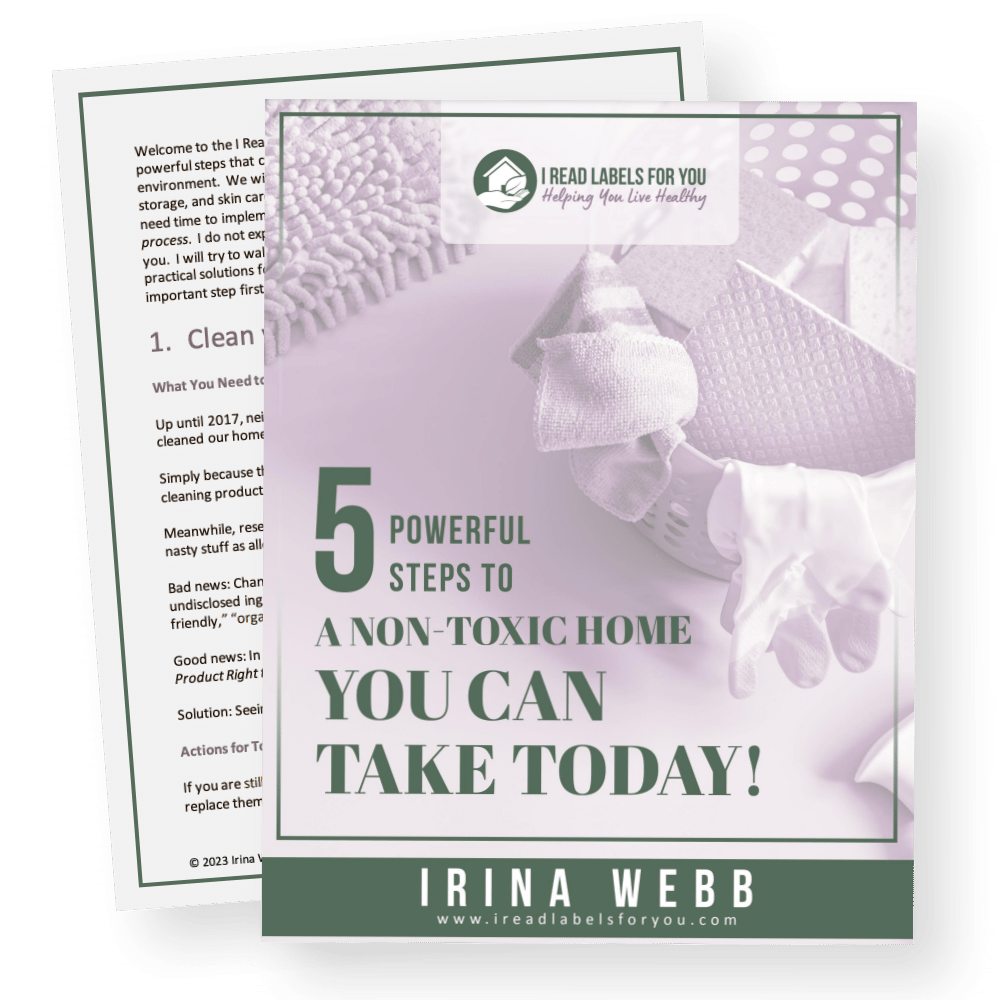
Download The Free Guide!
5 Powerful Steps To A Non-Toxic Home
Join our informed consumer community and get our free guide the “5 Powerful Steps To A Non-Toxic Home”.

 Written by
Written by 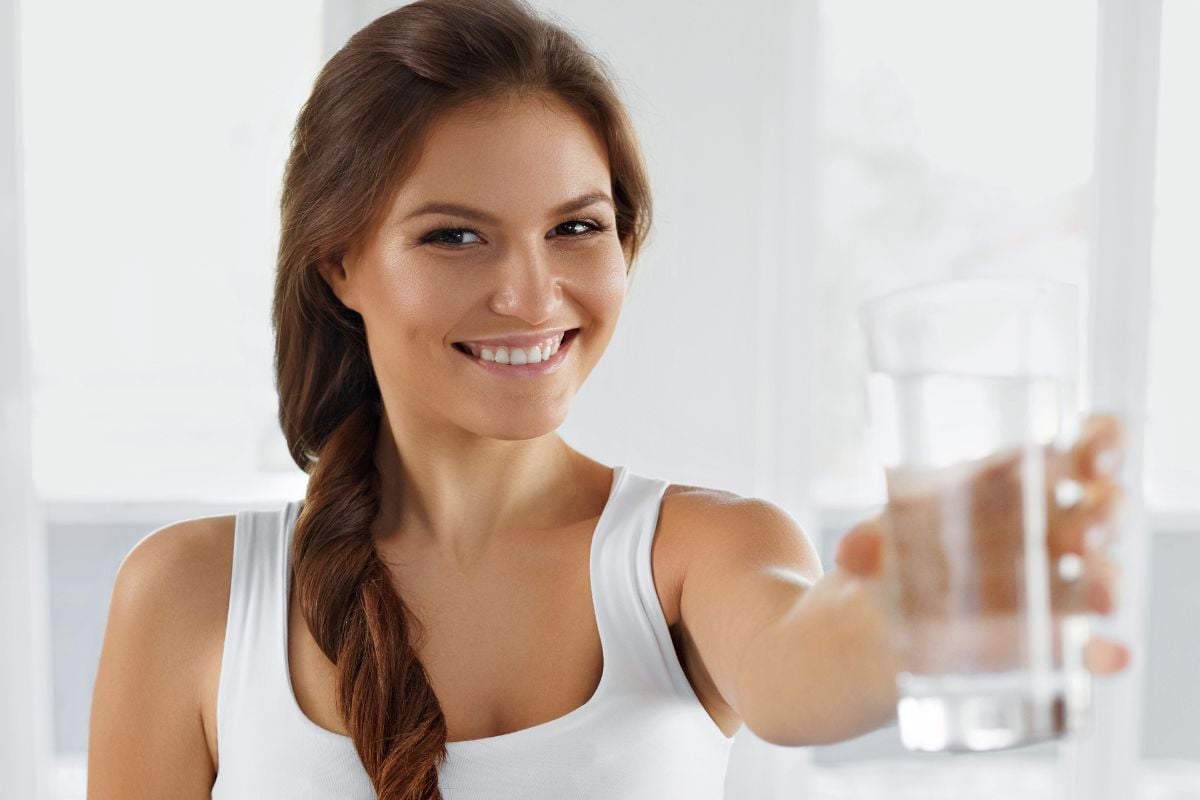

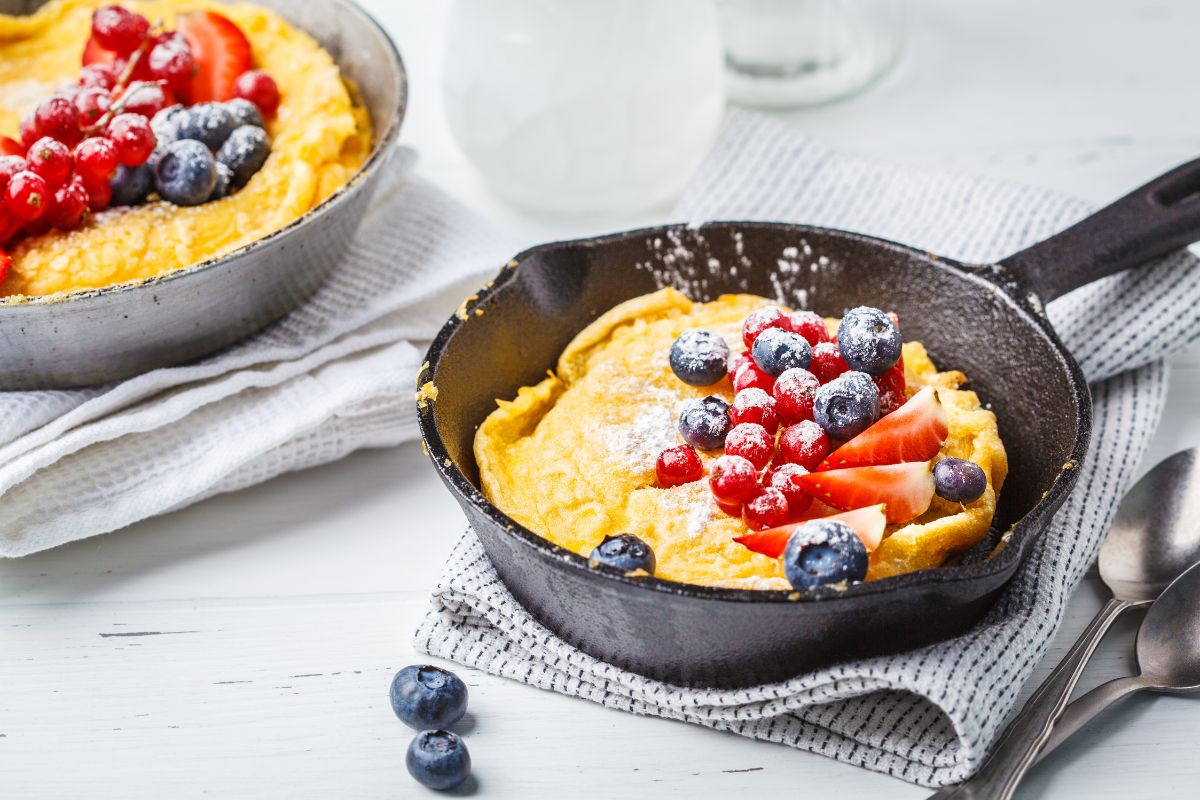
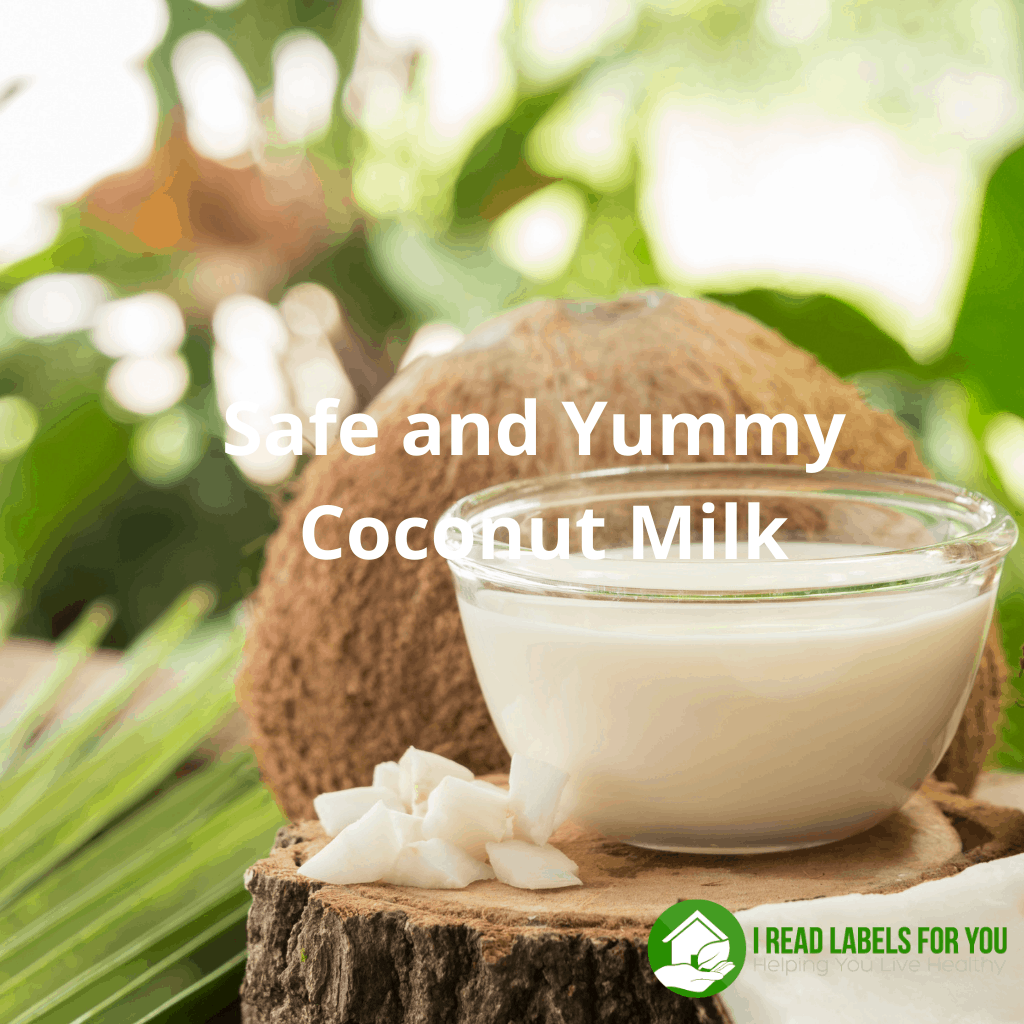
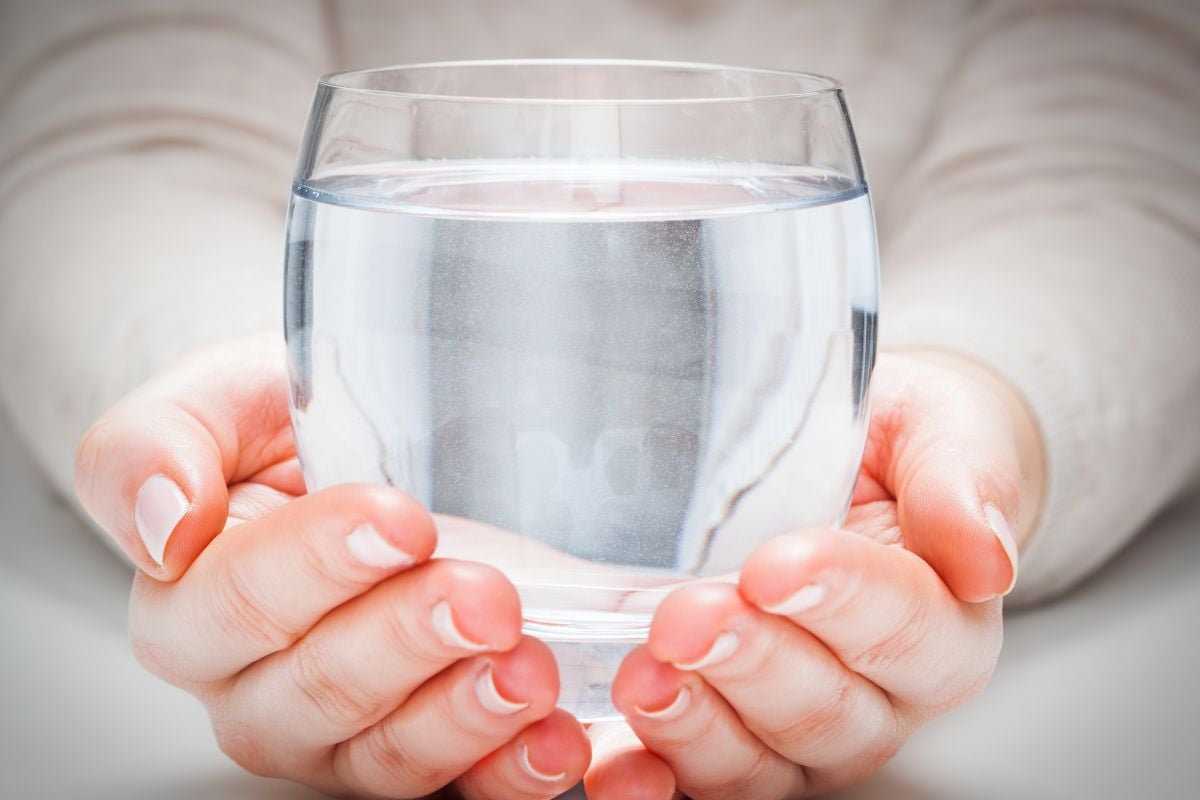
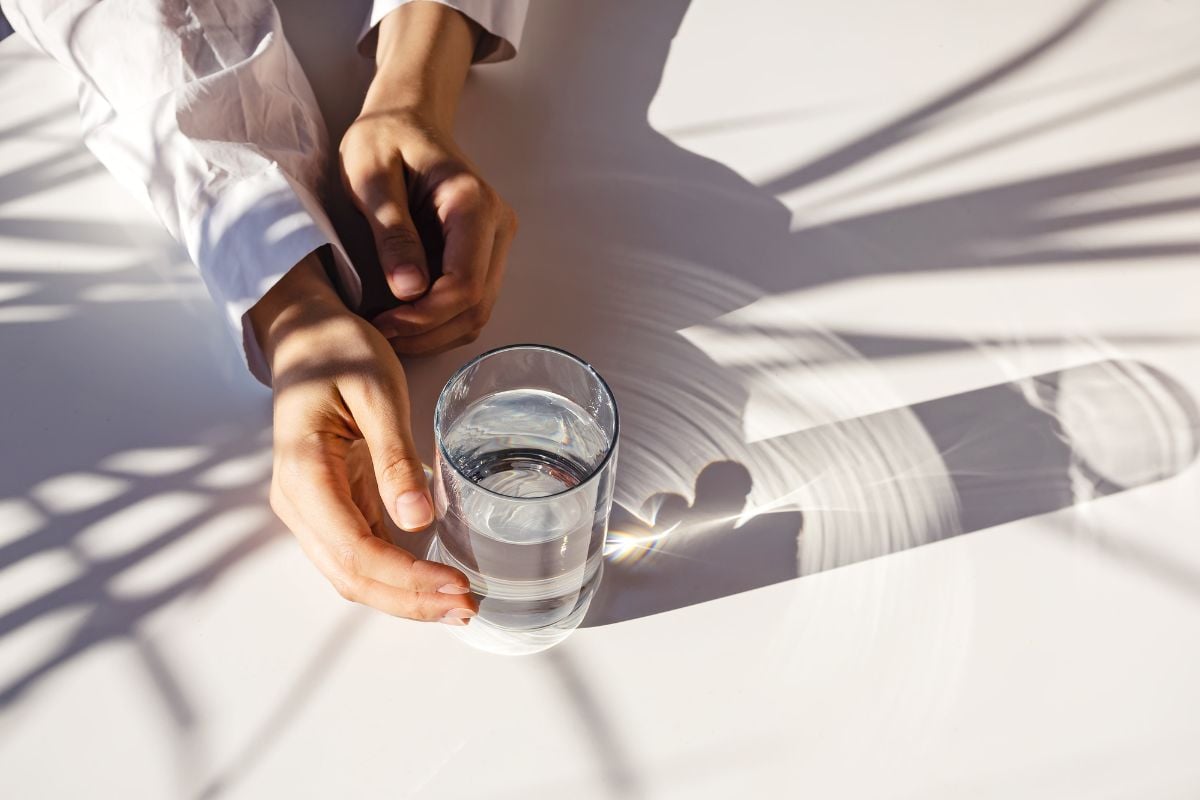
A well thought out writing. We enjoyed it very much.
Guy and Kristen
Lol are you serious?If you want to have a healthy baby you should AVOID fish because of high levels of heavy metals and pollutants ESPSCIALLY CANNED which contain ALOT more heavy metals.
I agree – seafood is so polluted. I applaud you for giving up seafood. Was it hard to do? ~Irina
It wasnt hard at all especially when you think about the lives of the animals that have to die for your ego and taste buds.Also you hurt yourself with it.You should also check your amalgam fillings because heavy metals also pass from generation to generation and pass into your child and can cause many problems.thank you for answering and Merry christmas 😊
Hi, Murk:
Why do you think I have amalgams? You can read more about my dealing with heavy metals: https://ireadlabelsforyou.com/chelation-therapy-heavy-metals/ I have recovered from Hashimoto’s and am getting close to recover from another autoimmune condition. Have you been tested for heavy metals? ~Irina
Hi Irina,
I am looking for the best tins use as camping pots? Would you suggest Eden food cans are my best bets?
Hi, Sue: Yes, Eden food cans are the best bet, just not the tomato-based items. ~Irina
Campbells has a Well Yes line of soups, BPA-free, and looks like they are steel cans? They are definitely thicker/heavier than normal. Have you looked into how good they are?
Hi, Ellen: When it says BPA-free, most of the times we do not know what they use instead of BPA. And when they do not disclose it to us, how can we trust that the substitute is safer? Can you trust them? ~Irina
Hi, Elena:
I don’t like Polar sardines because they are smoked. I try to minimize eating smoked food as it is not good for the health. I found Ortiz sardines sold at this retailer cheaper than on Amazon. ~Irina
Thank you, Irina. Wow, what a find. I love jet.com.
Hi Irina,
I was wondering what you think about Polar sardines in glass jars. They are quite a bit cheaper that Oritz.
https://www.amazon.com/dp/B07347V34F?psc=1
Thank you
Would love to see them switch to glass jars instead of cans, healthier and great to reuse.
hi, i’ve now given up sardines in tins after hearing about bpa,i’m from the uk and my local supermarket fish counter sells fresh sprats at £3 a kilo very tasty in fact cheaper and tastier than tinned sardines and totally free of bpa
Talk about an eye-opener! I have been pretty proactive in choosing better options for several years now, and ALWAYS look for BPA-free cans… But wow. I had no idea! Looks like I will be looking for glass jarred alternatives and finally trying to do dried beans (such a daunting task! LOL)
Thank you for this info!
Hey! This was super helpful! Thank you!
Quick question– do you think it’s harmful to eat food out of cans if it’s something like chips? I understand how the metal toxins would leak into beans, tomato sauce, etc…. but something like chips are pretzels bought in a metal can would be fine…. right?
Thanks again!
Hi, Val: I would say chips would provoke much less leaching. You are right fatty or acidic food provoke more leaching versus dry foods. Stay in touch. The best way to keep in touch is by subscribing to the blog. Let me know if I can help you with anything else. ~Irina
Hi all! I posted some new information about BPA-free canned coconut milk, cartons, and coconut milk in glass jar. Check it out here: https://ireadlabelsforyou.com/yummy-and-safe-coconut-milk/
~Irina
I use Native Forest, they are supposedly BPA-free, but I have done no further research into it. i order bulk packages of it on Amazon when the price is right. I’d be curious to know if I’ve substituted one demon for another.
here’s the new champion! My new favorite….I’m not sure if they use high heat yet…
http://www.tropicaltraditions.com/coconut_cream_concentrate.htm
http://www.wildernessfamilynaturals.com/product/CMO330Case12.php
reading up on this. the cans use a 90 minute high heat process. Wilderness Family Naturals has a different packaging technology that only uses high heat for less than 6 minutes. Isn’t high heat, high heat? You don’t want ANY high heat really do you? Still looking for the best option here, these are all pretty good, not sure if they are GREAT yet…
No we do not want any high heat. Six minutes high heat is enough to heat 5 oz can up to a temperature to break the chemical bonds of many of plastic linings and can produce VOCs and also can speeds up undesirable chemical reactions degrading food quality and/or produce toxic byproducts.
Any progress on the canned coconut milk research? Eden Organic doesn’t seem to carry it, to my knowledge.
Natural Value? or Native Forest? Those look like the two choices on amazon…which do you think is safer? Which is fresher? I buy coconuts fresh but would be great to have some high quality canned stuff if it was clean and healthy and reasonably fresh? Does coconut milk stay fresh in a can? I’m finding that coconut OIL does have a shelf life definitely, especially once it’s opened, not sure about canned coconut milk yet. Of course once you open the can, the game is afoot, but if you stored away 100 cans for a rainy day, how long would that coconut milk still be yummy.
Just to take a random segue…I know the ancient Egyptians were able to preserve some foods for 1000’s of years, like licorice I think. I wonder how they did it? (non-bpa ceramic jars?) just kiddin, but I am interested in how they preserved food for 1000’s of years successfully, they seem to have been amazing with preserving food somehow.
scratch that. they are the same price really, the Eden cans are twice as big! Thanks so much, I’m going to order some of the Eden.
those are cool, but twice as expensive as the Westbrae Natural. I wonder if Westbrae Natural is ok, they also claim to be BPA free on their cans.
for vegetarians, salads sometimes really need more than just a hardboiled egg for protein. can you maybe fine us some BPS free garbanzos? are these Westbrae Natural Garbonzos REALLY BPA Free, for example….
http://amzn.to/1Q85emJ
I also wonder if you can find out if they use something else that might be even worse for the new bpa-free cans. Anyway, so far, I found that one can of garbanzos, Westbrae Natural. Looks great!
Hi Martin: Eden Organic carries garbanzo beans. Eden is the only company I trust with canned beans.
looking forward to learning more and please let us know if you find other safe cans of coconut milk that might be just as good or better. I also wonder if some canned coconut milk might be fresher than others…
what about natural value cans? any idea?
http://www.amazon.com/dp/B000LKVIEG/ref=wl_it_dp_o_pC_nS_ttl?_encoding=UTF8&colid=LIJIFY3NNH9J&coliid=I250JWL66JHOPD&psc=1
Thank you so much for this question, Martin! Since I published this post, I have wanted to start researching safe coconut milk products. But nobody asked me this before. I will get on this as soon as my schedule permits. Stay tuned. ~Irina
I would say the thing I buy the most is organic chicken broth. I know I need to make my own :(. So pacific brand and Swanson and wild oats. I think the box packaging is from the same company for most of these foods. I think it’s called Tetra Pak. I feel like I’ve even seen this brand on certain milk cartons. I hope that helps!
Thank you, Dana!
Thank you for all you do! I feel like I read about it once on a blog but like you found, it’s sometimes difficult to get information. I do use the boxed stuff but I’m wondering if that’s any better.
We can start with a specific brand. What are your favorite brands you buy?
I try to avoid canned foods as well. You are right – it isn’t that hard just sometimes more time consuming, which is fine 🙂
I would love to know what is in the lining of the alternatives – soups in boxes and tuna in pouches, etc.
Ok, I will get to it. 🙂 Thanks, Dana.
It’s an interesting balance to think about. The tuna Dana mentions has high levels of pollutants (being a large fish) from all the different ways we use plastics in our society. So any packaging that is not reusable, plastified boxes, or pouches or what have you, will impact our health ultimately. It’s important not to look just at the packaging that the food comes in. Convenience is the problem.
On the other hand, when you make your own soup, or tomato sauce, maybe make a large batch, freeze, and trade with a friend–perhaps even buy local produce–there are multiple layers of benefits, hopefully enough to offset the time you spend cooking!
Thank you, Dr. Ashe! It is SO heart-breaking to know that our oceans and rivers are so polluted now that there is no safe fish. It is a matter of a degree now. The bigger fish, the more toxins it was able to accumulate. When we were in Hawaii, we visited the Maui Ocean Center. The scientists there told us about the devastating pollution of the oceans. One of the scientist told me to avoid eating shellfish altogether because shellfish get their nutrients from the water along with all the industrial chemicals we produce. I love mussels and oysters and clams. I guess no more. So sad. I came back inspired to do whatever I can to stop further pollution. When we buy a product, we have to think about our oceans, rivers, air, and soil. What are leaving behind to our children?
Thank you, Irina, for this great blog. Very helpful info. We do give our kids Wild Planet sardines, so this is helpful info. We will have to decide what to do there. Oy! Also, I am wondering about the cardboard bowls used at Chiptotle, which has now gone GMO-free, but the bowls seemed to be lined with some shiny coating. I am suspecting this isn’t very good either. Thank you for your great work!
Yep. You might be onto something. I am planning to look into that soon.
I think some of the grease-proof containers (including pizza boxes and some of the shiny cardboard) consists of non-stick coating PFOAs–associated with a number of adverse effects, even if you don’t heat them up. They are also the coating on Post-It notes.
Just as an FYI, Eden Foods has eliminated coverage of all birth control from employees’ healthcare plans due to the religious beliefs of its CEO, Michael Potter. I will personally not purchase its products despite their relative safety due to its discriminatory practices.
“A lot of times, what happens is once a chemical becomes notorious for its harm, manufacturers easily switch to another chemical that is often as harmful as the original one but which has not received the same notoriety.”
In my experience, truer words have never been spoken. Thanks for a great article. Think I am going to start omitting canned products from our diet. It always bothers me whenever I open one, no matter how good the product inside. It’s a shame it has to be this way.
Luckily for me, I won’t be having any more kids and I don’t care for sardines(:
It is nice to hear from you, Maria!